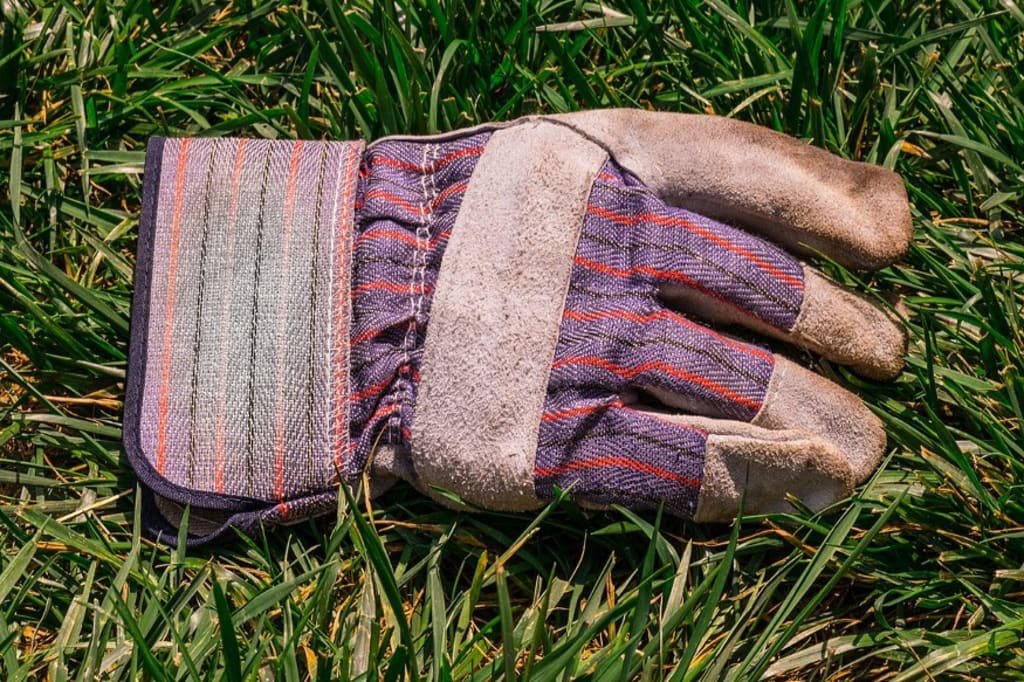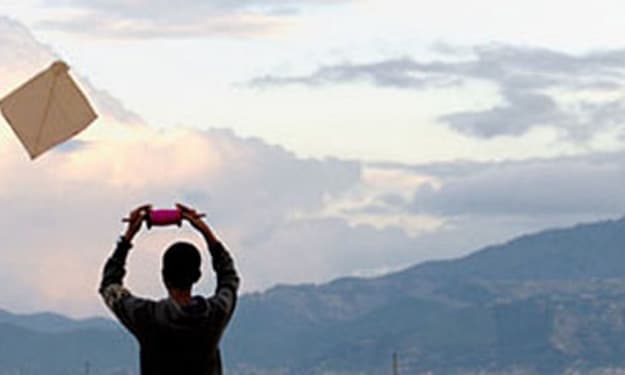
A long, lonely road led up to Ted Schubert’s Sawmill. No one ever came by, but I did, because no matter how lonely a place can be, a man broke and unemployed, with nowhere left to go, can find it.
I parked my truck by a pile of firewood logs that were turning black at the ends and growing fungus in the middles. The firewood pile going bad was a sign of good business and a chance he might be hiring. I didn’t know much about making logs into furniture, but I can cut up firewood. We can help each other before those logs turn to mush.
As I reached the end of the pile, I sprang back suddenly as a tractor carrying some beech logs cut me off. The tractor, a blue and white Ford 9N with a homemade front-end loader, whined by in fourth gear. The logs carried in front overbalanced it so that its back wheels lifted up off the ground and spun gravel. At the wheel of the seesawing tractor was a fifteen-year-old girl just home from school with a pack of books still strapped to her back. The sign in the yard read, Schubert & Daughters, Lumber Co., and this was Crystal, the younger of the two.
Years ago, we heard Schubert’s wife, Sara, had run off towards less lonely roads and left him with the two girls: Crystal and Leah. Ted put up a sign that read, Schubert & Daughters, Rabbits, and set to building rows and rows of cages. They filled in no time, of course, and Crystal toddled from one end to the other, feeding lettuce. But the girls objected to the butchering, so they sold off the rabbits and raised goats. They made a new sign and the girls braided their blond hair to look like Heidi when they brought their cheeses to the Farmer’s Market in the city. Ted built fence, but the goats kept getting out no matter how high he made it, the grass being greener and all. The girls loved the goats, but Ted, who already had a wife run off, had little patience for their capers. He became convinced that there was more money, and less chasing, in sawing logs. He repainted the sign and let the girls keep their favorite goat. One could drive by and all that would be left in the field would be the sign and the single lonely goat chewing it, as if making the sign go away would bring back the herd.
Soon the sign and the goat were joined by piles of logs that they had cut and skidded. They then set up a mill that commenced to saw up the lumber for the pole barn to shelter it, like a worm spinning its own cocoon. An immense roof that could cover four sawmills now loomed over what was once the pasture. It seemed to be built as if to convince the girls that big things were coming their way, if they would only stay.
I picked my way around the log piles, keeping a lookout for the hyperactive teenager on the 9N. The goat was working on some weeds and a barking German shepherd pup was tied to a pole in the dusty, empty end of the barn. The structure only had one wall yet complete, sheltering the workers from the coldest wind from the west. Spare circular saws hung from nails driven into the wall. The wind, sweeping around the corner of the barn, picked up and swirled sawdust in mini tornadoes. When the machinery was silent at night, the spare saws, rung by the wind, could be heard for miles, tolling like bells.
Ted’s crew was hard at work within the barn now, and it was the rumbling of the mill that could be heard for miles. Stepping inside, I could see Ted working on the headsaw at a brisk pace. A gray beard flattened against his broad chest as he canted a new log onto the carriage. Holding it in place with his knee, he dogged it down with the severe efficiency of one who knows the place for everything. He then leaned on a lever and the log was winched into the spinning teeth of the headsaw. The saw’s rattley breath turned into a growl as it bit into the log. Ted’s eyes were steely blue and, between them, the beard, and his zeal, you might have thought he was John Brown, sawing the country in two. When the cut was complete, he threw back the lever, and the carriage returned to its place as he reached within inches of the saw teeth to clear away the slab.
“I don’t need a guard on my saw,” he always said, “I know where the teeth are.”
As Ted began to peel off planks of clear sapwood, he pushed them on a roller table towards the eldest daughter, Leah, who shoved them through the edger. Leah, whose figure was substantial enough for me to enjoy through her coveralls, trimmed straight the edges of the slabs; that done, she seized the edgings and threw them like javelins into the firewood pile. The two, father and daughter, worked together as wordless as enmeshed gears, anticipating each other’s every movement.
Ted motioned to fix myself a cup of coffee. As I went below the carriage track, I found I was not alone in my admiration of the two girls. I found a slack jawed teenage boy, leaning on a shovel, staring up at the Amazon who threw her javelins with haughty disdain. The boy was no relation. No doubt he had come for the perky Crystal and discovered the remote beauty, Leah, who had quit school long ago and, rarely leaving the woods, was unknown to the young people. Not wanting to lose a daughter, Ted kept the boy close at hand, gave him a shovel, and put him to work on the sawdust pile.
I fixed my coffee and drank it slowly as I watched. From time to time, a gust of wind swept the mill floor above clean of sawdust. I covered the cup with my hand to protect it from flying flakes. Below the saws, the chips, undisturbed by the boy leaning on his shovel, collected in a heap. Individual chips were flung from the saw and cascaded down the pile, until, finding their place, they settled for a while. Every now and then little avalanches would start, as the weight of new chips would disrupt the balance of the pile.
I was so caught up with the sawdust, I startled when Ted dashed down to the mill engine, let out the clutch, and pulled the choke. The engine lugged to a stop as the headsaw spun free. Had something gone horribly wrong?
“Sara.” The man said as his face struggled between hope and anger. The headsaw was still spinning, as they looked each other up and down. Leah pulled off her gloves and shook the sawdust out. Her face was set hard and a hurt was creeping into her jaw. She looked at her mother as one might regard an old work glove with its fingers packed too full of sawdust to wear. Crystal parked the 9N nearby and bounded off it. She began to run towards her mother, but, seeing the tension in the scene, she stopped and unstrapped her backpack.
Ted asked Sara, “What do you mean by coming here?”
“Aren’t these my children? I came to see them.”
“Are they? They’ve been your children all along, you haven’t wanted to see them for years.”
Sara was a fine looking woman whose genes contributed to Leah’s beauty and Crystal’s sparkle, but Ted’s look cut and stacked her as if she were no more than a pile of peckerwood thrown out back, waiting to rot. It was a look that only could mean that he was cradling a loader full of pain inside.
I’d come for a job and had, instead, been cast in a soap opera. I was looking for a place to retreat.
Crystal unchained the German shepherd. He hunkered down on his forequarters and playfully barked. She barked back to him. He began to dash around on his four legs as Crystal had on her 9N.
“I left you, all right, and I haven’t seen the girls, but I’ve come to see them now. I want them to know that they have choices and they don’t need to stay here. You can’t hold them here forever to keep you company.”
Leah turned her back to them as she began to cry. She faced the swing saw, a twelve-inch blade mounted on a pendulum to cut things to length. She shoved her gloves back on, started the motor, and tugged planks down the roller table, squaring off their ends. The noise drowned out her parent’s words as they continued to cut each other up.
The dog had found a rope and played tug-of-war with Crystal, his four legs locked stiff as she towed him across the floor. They stopped when Leah started the swing saw. Crystal watched her work and said between cuts, “You don’t have to trim the ends of those planks. We’re selling them for squares.”
“I know,” said Leah, and the tears came on strong.
Life has a way of changing all at once. Just like the chips on a sawdust pile, they achieve a balance for a long time until one hits in the right spot and throws everything all to hell, the whole side of the pile sliding off. The avalanche doesn’t stop till they get back in balance.
Leah was crying so hard, she may not have seen where the saw blade was when she stuck her hand in it. Or, maybe she knew right where it was and just wanted to stop the arguing; either way, the arguing stopped when Leah turned around, holding up her injury as if she was holding a hostage. The hand was gone at the wrist, and the cuff of her work glove had slid down to her elbow. Leah turned white and might have fallen into the swing saw had Crystal not turned off the motor and steadied her. Sara bounded up the sawing platform and took off her shirt to wrap around the stump. In no time, Ted had the truck in the mill and, showing the same efficiency they had shown when sawing, Schubert and family were together again and off on the long ride to the hospital.
“I’m out of here, Dude,” said the boy as he cast down his shovel. It disrupted some sawdust and I watched until the pile became still. Leah’s hand was left on the roller table. I held the hand. It was still warm. Then, I buried it by the firewood pile and tied up the dog. By the time I was done, the roar of the mill was gone from my ears and the spare saw blades tolled on the one wall that sheltered the workers from the western wind.
This story is adapted from my novel, Fate's Janitors. I've written lots of books. Find them here.






Comments
There are no comments for this story
Be the first to respond and start the conversation.